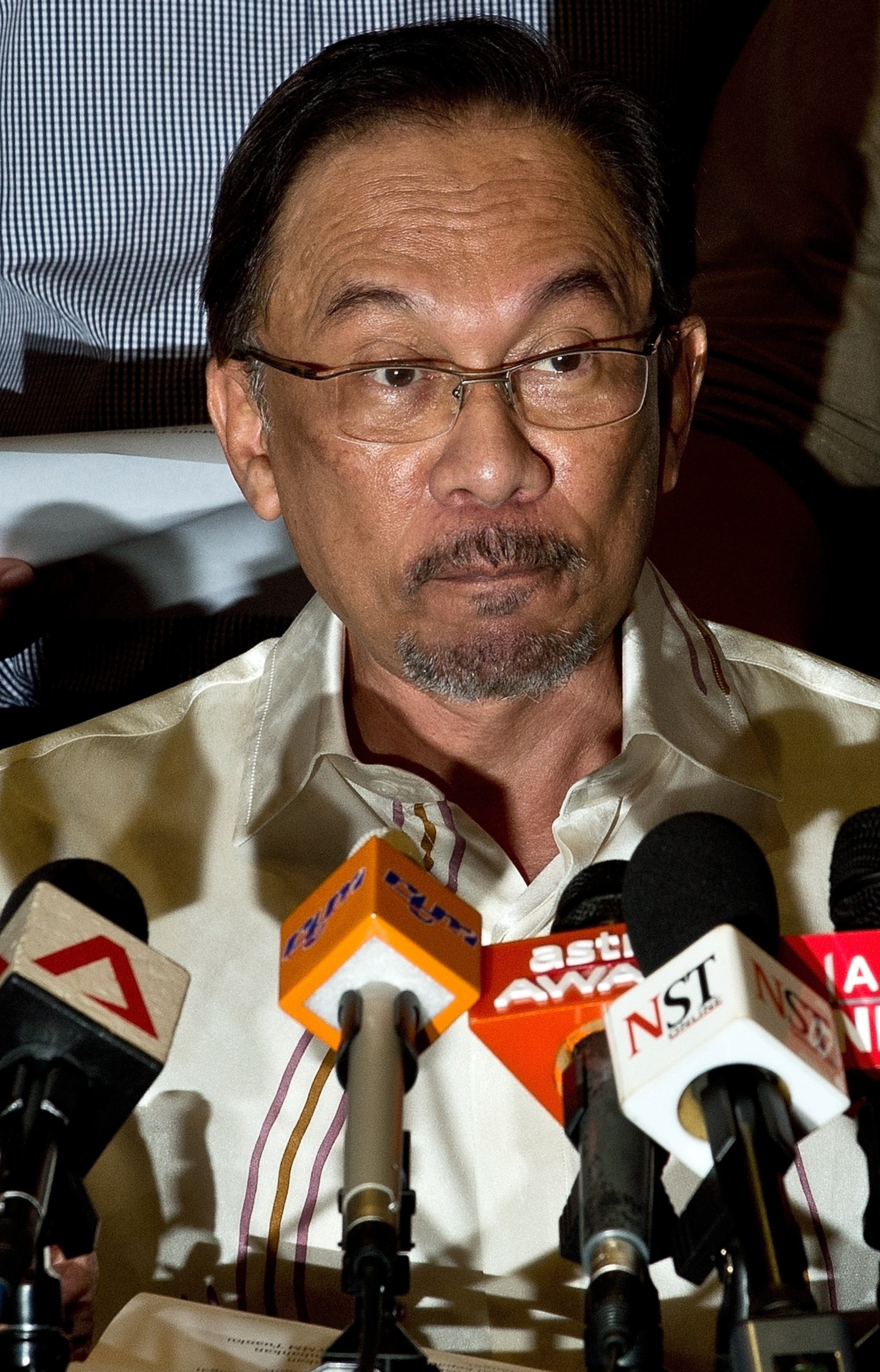
Malaysia’s opposition leader Anwar Ibrahim returns to court next week to learn whether he will be jailed on sodomy charges.
On Tuesday, Malaysia’s Federal Court will hear Anwar’s appeal of his March conviction for engaging in homosexual acts, charges both Human Rights Watch and Amnesty International say amount to “politically motivated persecution.”
Speaking to TIME on Friday, Anwar said his chances “didn’t look good.”
“Most of Malaysia does not believe that I will get a fair trial or a decision based on the facts of the law,” he said. “But I want to show young people that [my conviction] is a small price to pay in the struggle for freedom and justice.”
Anwar was originally arrested on July 16, 2008, after a former male aide alleged the pair had engaged in consensual sexual relations — criminalized under Malaysia’s colonial-era “sodomy law.” The High Court then acquitted Anwar on Jan. 9, 2012, ruling that DNA samples vital to the prosecution case could have been contaminated.
On March 7, 2014, the Court of Appeal overturned the acquittal and sentenced Anwar to five years imprisonment. The hearing was originally scheduled for April but was curiously moved forward a month. This meant Anwar was disqualified from running in the Kajang district state assembly election on March 23.
Phil Robertson, Asia director of Human Rights Watch, has urged the Malaysian authorities to drop the case or risk making a “travesty of the country’s criminal justice system.”
“Prosecuting Anwar for something that should never be considered a crime shows how far the government is prepared to go to remove a political opponent,” he said.
Anwar’s imprisonment has been stayed during his appeal, but if convicted he faces five years in prison plus a mandatory five-year prohibition on running for office, effectively ending the 67-year-old’s political career.
Malaysia’s May 5, 2013, general elections saw the Pakatan Rakyat (People’s Alliance) coalition led by Anwar win 50% of the popular vote. However, this only translated to 89 parliamentary seats due to the “first past the post” electoral system. (The incumbent National Front coalition government of Prime Minister Najib Razak gained 47% of the vote but 133 seats.)
Anwar and independent observers have alleged electoral irregularities and widespread gerrymandering, and thousands took to the streets to demand an investigation. Najib’s administration strenuously denies any impropriety.
More Must-Reads From TIME
- Dua Lipa Manifested All of This
- Exclusive: Google Workers Revolt Over $1.2 Billion Contract With Israel
- Stop Looking for Your Forever Home
- The Sympathizer Counters 50 Years of Hollywood Vietnam War Narratives
- The Bliss of Seeing the Eclipse From Cleveland
- Hormonal Birth Control Doesn’t Deserve Its Bad Reputation
- The Best TV Shows to Watch on Peacock
- Want Weekly Recs on What to Watch, Read, and More? Sign Up for Worth Your Time
Write to Charlie Campbell at charlie.campbell@time.com